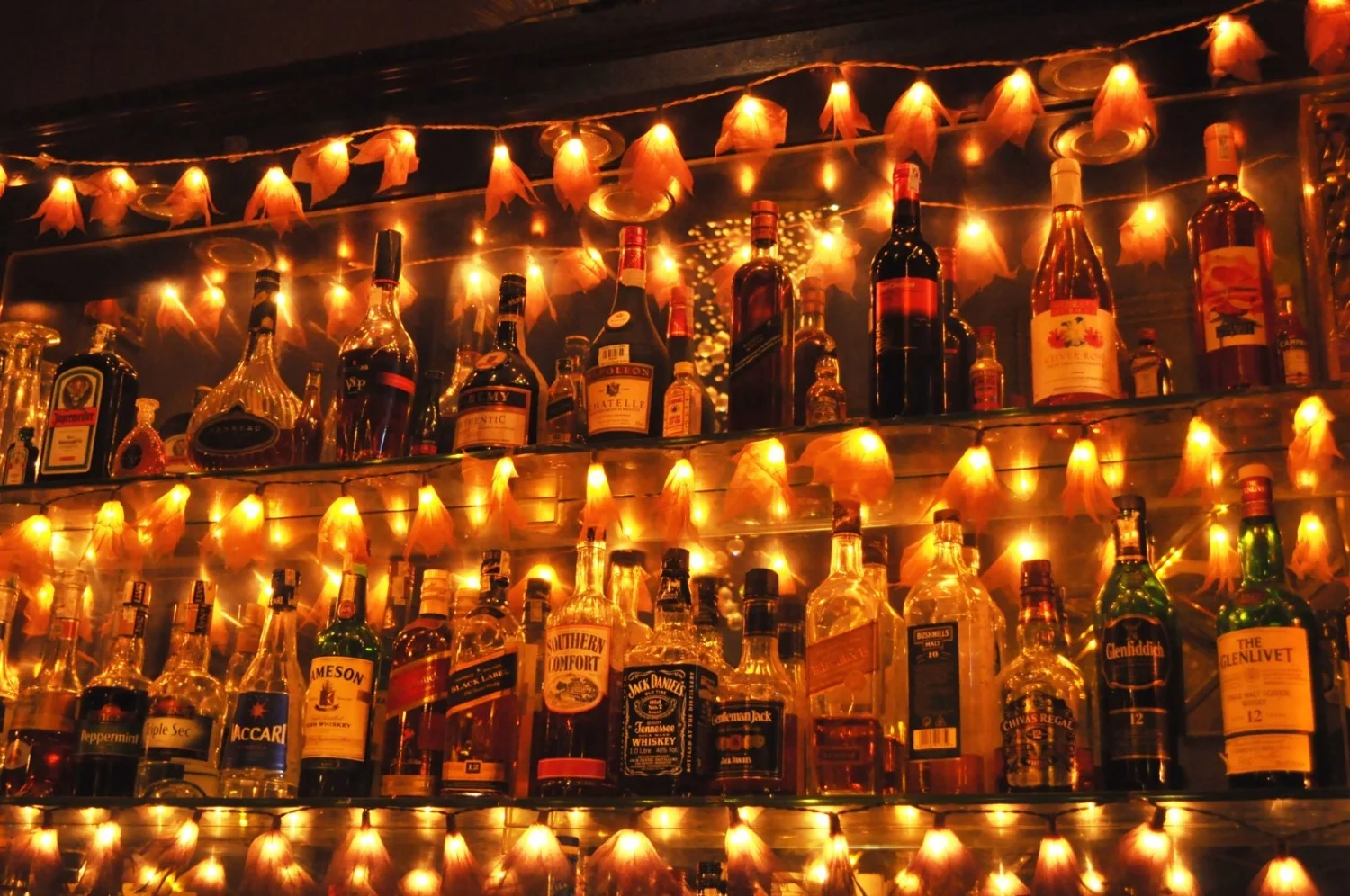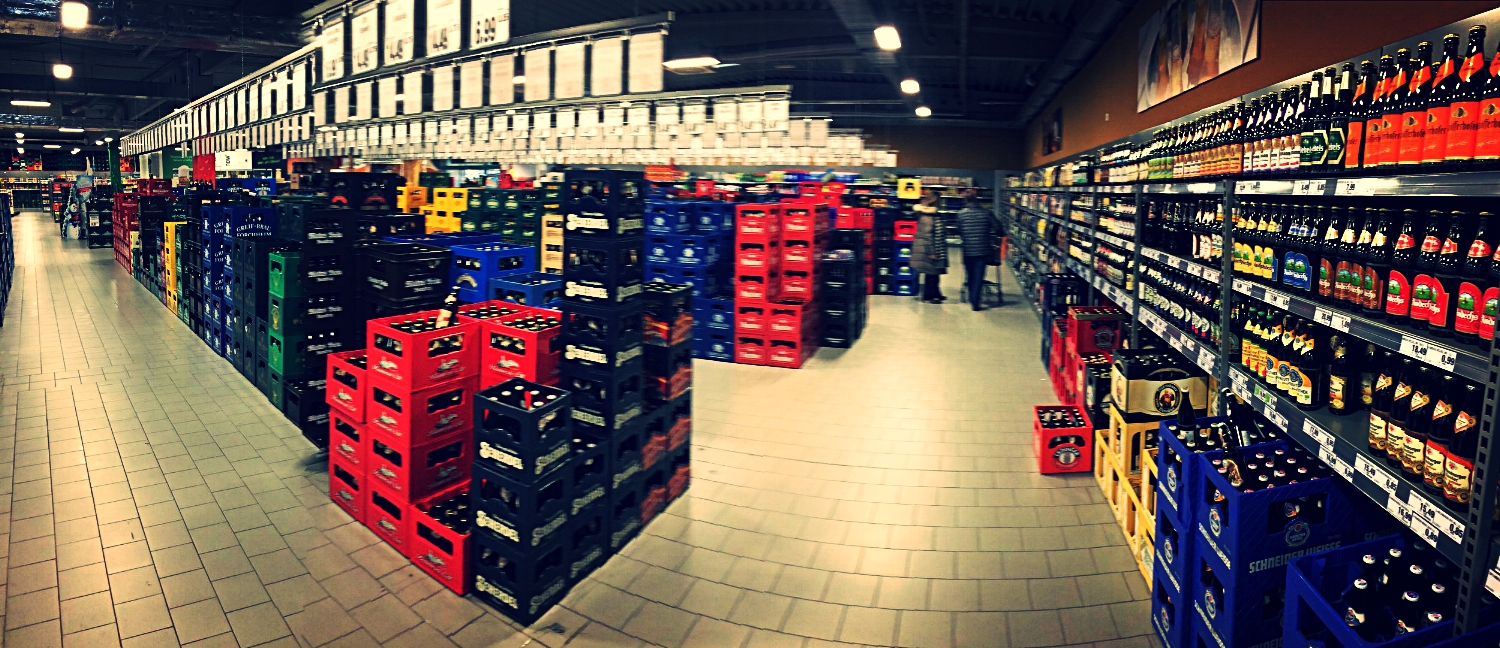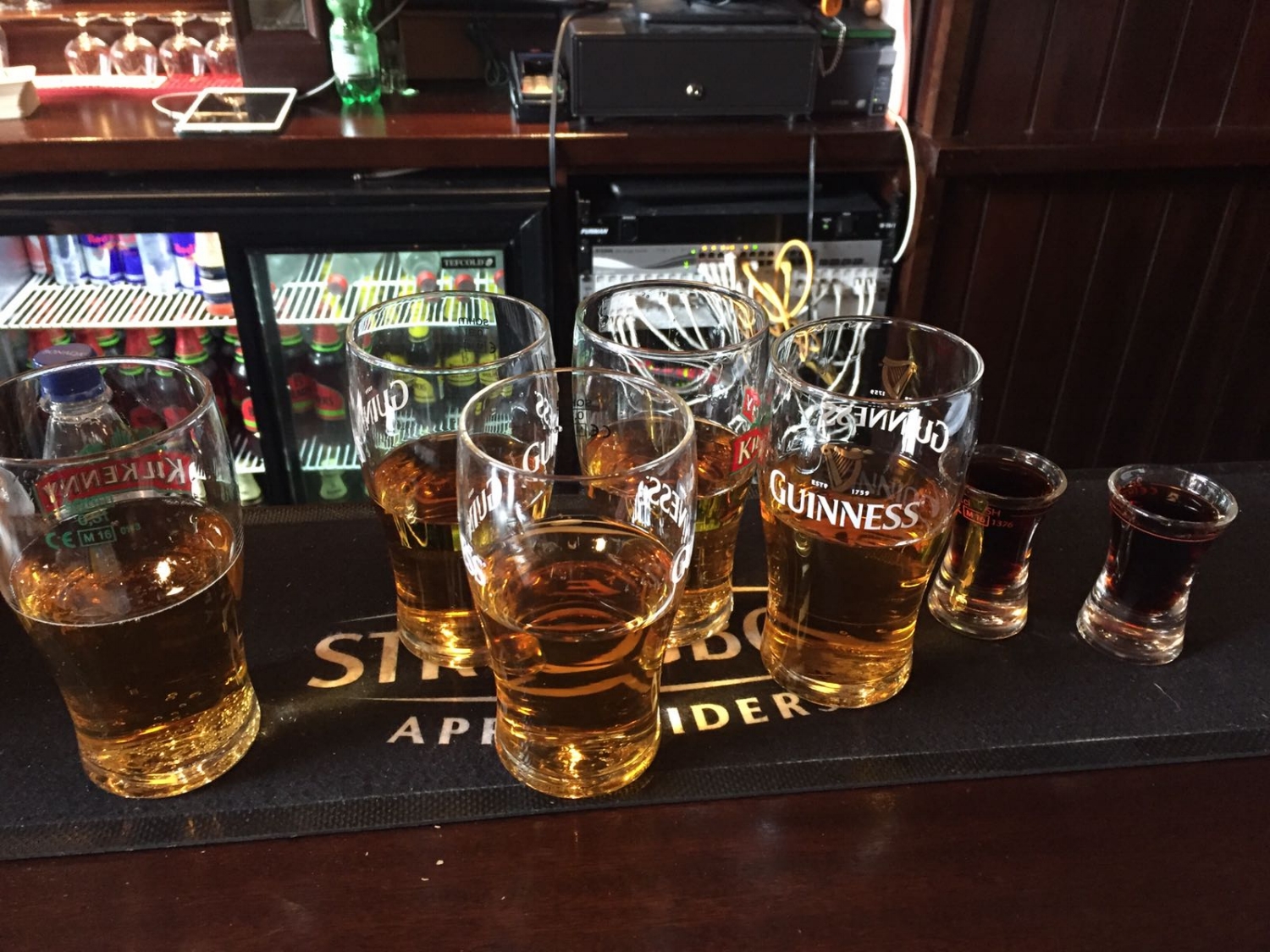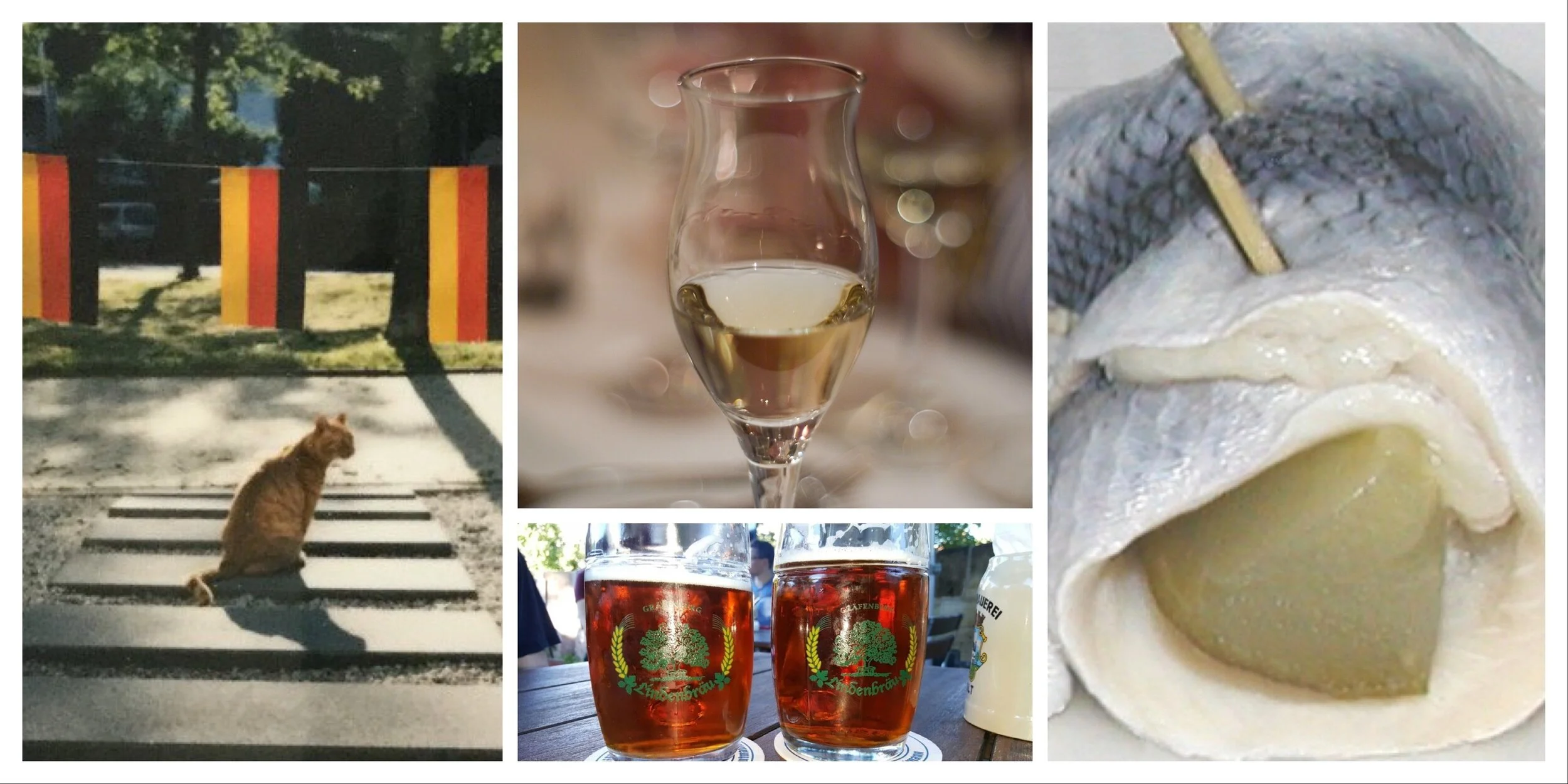To Binge or not to Binge: Drinking Culture in Germany
The British are famous around the world for a number of peculiar cultural peccadilloes, but one of the most commented on is the time honoured tradition of drinking too much. British drinking has far more in common with an extreme sport than it does with anything else; both involve some level of training and a high risk of physical injury. . Sporadically throughout the year, I will read a newspaper here in Germany or watch a news report that highlights the British overdoing it. Accompanying these reports will be lurid images of drunken women passed out in the street or shirtless men being led in handcuffs by the police. The trope of the drunken Brit is reinforced by both the British media themselves, which is often the origin og the footage used in the German news, and the habits of British holiday makers. Recently, when I asked a group of German students to name some differences between Germany and the UK, several highlighted that British women drink more than German women. Although I doubt the veracity of these claims, I would agree that Germans, despite having access to some of the finest beers, do tend to drink less than the British.
This is not to say that going out 'German style' is any less of an event. It does have one major difference though. That is to say I rarely suffer the ignominy of the “Tarantino Hangover'. For the uninitiated this involves the past nights hi-jinx being remembered entirely out of order. It's not until the last scene of this particular internal flashback reel that the entire story of your evening can be fully understood. Once the sequence of events is clear, a hungover person can begin the process of dying from acute embarrassment and/or calling friends and family to apologise for numerous infractions.
Although a German night out is less likely to result in being passed out in the street or with a night spent at the local police station, there are some similarities in drinking cultures. What is becoming more popular among the youth of Germany is the concept of pre-drinking, or warming up, by drinking in the house before hitting the clubs. The motivation being that it is cheaper to drink in the house than it is to drink all night in bars and clubs. This has certainly increased in Britain as the prices of alcohol in the larger supermarket chains undercut the prices to be found out on the town. Oddly, it is still popular in Bavaria, even though beer is subject to a statewide tax deduction.
It is also the case that both Britain and Germany use alcohol as a measuring stick for financial changes. During any British government budget announcement, there is special attention paid to the tax imposed on alcohol. It is usually specifically mentioned in the official government statement and is always covered by the media. There is no better way for a British politician to boost their support than to either freeze tax on alcohol or raise it by an insignificant amount. In Germany, during the festival period, it is common for people to complain that the price of a ‘mass’ or 1 litre glass of beer has gone up. Oktoberfest news reports will nearly always comment on price increases, using this, as well as overall attendance as a barometer of success. When the price reached €9 a few years back, there was a media backlash.
The pre drinking trend in the UK inevitably leads to accusations by news outlets that Britain is a hot bed of binge drinkers, which the casual observer of certain parts of the country would find hard to refute. However, Britain’s relationship with booze is complex and long. Modern journalist are not the first to comment on the British desire to get locked. Historian have found letters from diplomats to Henry VIII complaining that the locals were terrible drunks, but there is evidence from even earlier periods that the drinking culture of the UK has been typified by excess. As this article shows, printing medieval how-to-manuals on a cheap night out on the mead was common.
This cultural history of hard drinking has led to some politicians in the U.K. championing a minimum pricing scheme, while others decry this policy as attacking the majority to punish the minority, to the benefit of supermarket profits. Oddly the problem of binge drinking in Germany exists, but here the price of alcohol seems relatively cheap. In fact if reports are to be believed, in the case of beer, the prices are going down. The only complaint about this news is that the quality might suffer as a result.
This is perhaps the nub of the problem, Beer, at least in Bavaria, is considered a vital foodstuff and as such is subject to a lower tax bracket. Heavy drinking is still an active part of life in Germany, but there seems to be a level of moderation that is missed in the UK. The law allows for sixteen year olds to drink in bars, as long as they only drink beer or wine. This early introduction might give teenagers a better understanding of their tolerance to alcohol at an earlier age, while allowing young people to enjoy drinking in a safe environment. This quite pragmatic legislation reduces the likelihood that children or teenagers will be found illegally purchasing alcohol and consuming it out of the view of adult supervision. My teenage years revolved around alcohol as a forbidden luxury and once acquired needed to be consumed quickly in case anyone took it away. In addition, drinking as a group of children hiding in an underpass did not teach healthy habits, as we immaturely goaded each other into drinking as much as possible in a very short time. German fears, in contrast, revolve around the idea that youngsters are increasingly drinking spirits to excess, which under the law are restricted until the age of 18. Even though this is an area of some concern, the price of spirits still remains relatively low.
It might also be the case that beer culture of Germany has an impact on how young people drink. Germany is popular for lager and pils beers, but they also produce bock beer, which have a notoriously high alcohol content. In addition, as I have learned in the past, Fest beers or beers that are specially brewed for Volksfests and Dorffest, also usually have a high percentage content. Having these types of beers available throughout the year would make a good argument for supervised drinking..
Even if there are cases of excessive drinking in Germany, I have yet to see much of the violence that plagued my time working in bars during university. Fighting on the street does happen, but at such a low level as to be practically non-existent. Compare this to a recent night out in the UK that I had, where within the first hour I had seen several people begin fights or as is the case, end them. Furthermore, although Stag and Hen nights can be seen roaming the streets of a weekend in many German cities, rarely do you see debauched displays of the equivalent groups in Britain. I have yet to see a burly looking man, in a dress, marching through the streets with bottles of cheap cider gaffer taped to his hands.
Fundamentally, there is little moralising about excessive drinking here in Germany. It happens, but in the end, it is a question of personal responsibility. I have yet to see a newspaper take up a campaign against binge drinking as can occasionally be seen in the faux- moralising of the British tabloid press. British drinking is seen as a quirk of culture and to some an admirable quality. If you choose to get drunk then that is your business. Should you get injured, then that is your own fault. The UK government is preoccupied with binge drinking and excessive alcohol consumption due to the massive amounts of money that it costs the NHS and therefore the tax payer. As Germany has private insurance, your injuries are generally considered your own, which you will inevitably pay for one way or the other. The truly unforgivable act in Germany would be to not have any insurance at all.











